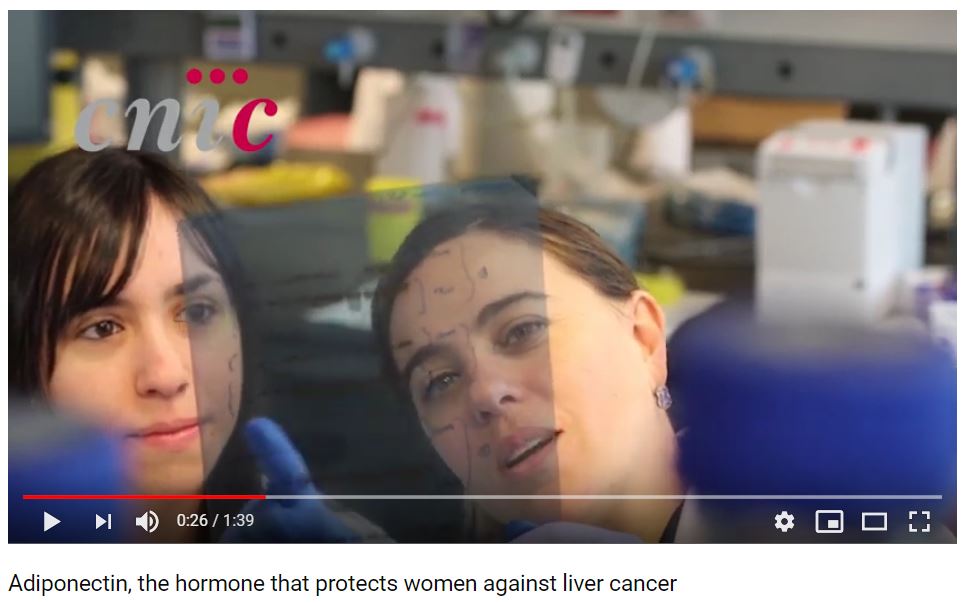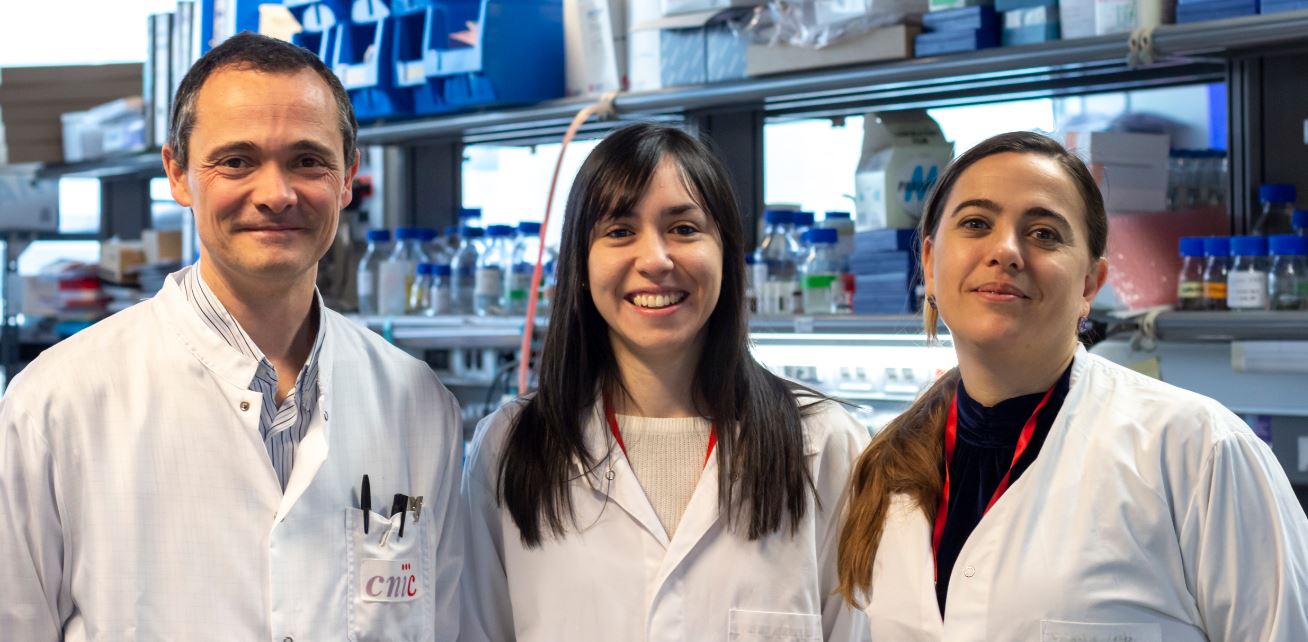Adiponectin, the hormone that protects women against liver cancer
- Adiponectin, secreted by adipose tissue, protects against the development of the main form of liver cancer
- Women produce the hormone in larger quantities than men, and adiponectin release also declines in people with obesity
- The results open the route to combating a cancer for which there is currently no treatment and that is the fourth cause of death in the world.

A key characteristic of liver cancer, which affects more than 1 million people worldwide each year, is that iti more common in men than in women. Now, a team at the Centro Nacional de Investigaciones Cardiovasculares (CNIC) has found an explanation for the lower rate of liver cancer in women. The answer lies in hormone adiponectin, which is produced in higher amounts in women than in men and protects the liver against the development of the main form of liver cancer, hepatocellular carcinoma.
In their quest to understand why people with obesity have a higher risk of developing liver cancer, the CNIC research group led by Guadalupe Sabio found that adiponectin is more abundant in women and slim people. The study, published today in the Journal of Experimental Medicine, shows that adiponectin protects the liver against the development of the main form of liver cancer, hepatocellular carcinoma.
According to the Cancer rates in Spain report published by the Spanish Medical Oncology Society (SEOM, in its Spanish initials), there are an estimated 5862 patients with liver cancer in Spain (4252 men and 1610 women). In line with other European Union countries, this corresponds to approximately 12 out of every 100,000 men and 3.5 out of every 100,000 women.
In the study published today in JEM, the research team showed that adiponectin, a hormone produced by adipose tissue, has an anticancer effect in the liver. In a group of healthy individuals, the team found that women produce more adiponectin than men. Describing the study, Dr. Sabio commented that “the circulating levels of adiponectin decline with the development of obesity and after puberty in men, and these are precisely the populations with higher rates of liver cancer. This observation prompted us to study the phenomenon in depth.”
To investigate the direct action of adiponectin, Elisa Manieri and Leticia Herrera-Melle studied genetically modified mice unable to produce the hormone, finding that the females developed liver cancer as much as the males. Herrera-Melle explained that, to understand the mechanism through which fat controls the growth of tumors in the liver, “we focused on the effect of testosterone on adipose tissue. These studies showed that testosterone reduces the amount of adiponectin released to the circulation. ”
According to Dr. Sabio, the results “open routes to combating a cancer for which there is currently no treatment. One approach would be to use adiponectin itself, while another option is metformin, a drug used to treat diabetes that targets the same anticancer protein as adiponectin.”











